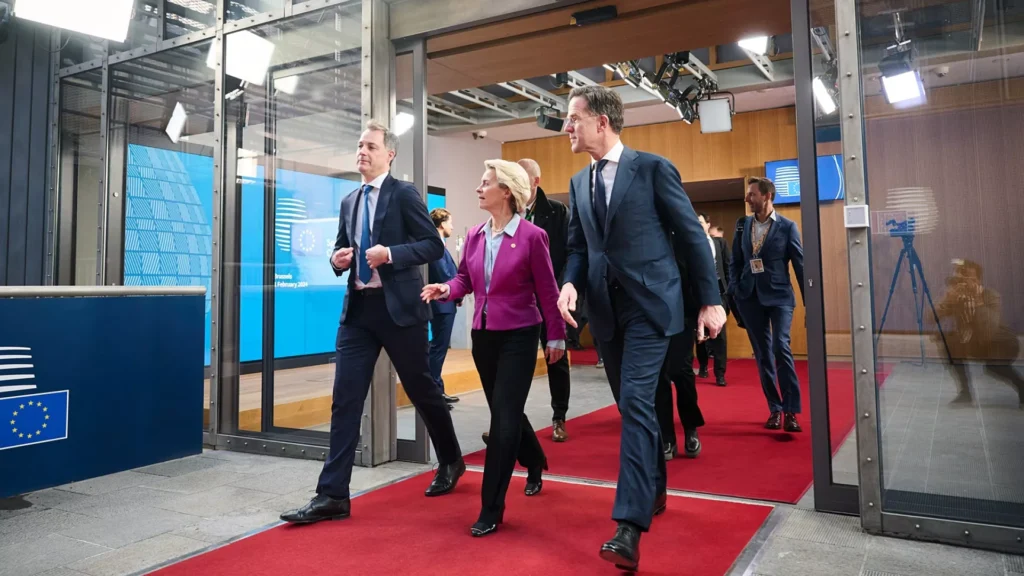The European Union is on the verge of increasing its common budget by an additional €64.5 billion, though not without certain conditions and changes. After months of intense negotiations among member states, the budget review was approved during an extraordinary summit on February 1. The final deal signifies a compromise, as the original proposal of a €98.8 billion top-up was significantly reduced due to resistance from member states facing economic challenges. Let’s delve into the key components of this budget review:
Key Points:
1. Ukraine Facility: €50 billion
- The revised budget focuses on aiding Ukraine, introducing the Ukraine Facility to provide €50 billion between 2024 and 2027. This financial support aims to sustain Ukraine’s economy and vital services, combining grants (€17 billion) and low-interest loans (€33 billion).
- The funds will be used for essential sectors such as healthcare, education, and social protection, contingent on Ukraine implementing structural reforms and investments to enhance governance and fight corruption.
- A yearly debate will be held to assess the Facility’s implementation, with no voting rights granted.
2. Migration Management: €9.6 billion
- Acknowledging migration as a European challenge, leaders approved €9.6 billion for migration management. This funding supports border control, relations with the Western Balkans, and the hosting of refugees in various countries.
- The allocation aligns with the goals of the New Pact on Migration and Asylum.
3. New Technologies: €1.5 billion
- The Strategic Technologies for Europe Platform (STEP) aimed at financing cutting-edge technologies received a modest allocation of €1.5 billion, primarily supporting the European Defence Fund (EDF).
4. Unforeseen Crises: €3.5 billion
- To address unforeseen crises, the budget review designates €1.5 billion for emergency aid and €2 billion for the Flexibility Instrument, which can respond to critical situations.
5. Interest Payments: Zero
- Interest payments related to joint borrowing for the €800-billion COVID-19 recovery fund will be managed through a “cascade mechanism,” drawing funds from existing provisions, underperforming programs, and the Flexibility Instrument before considering direct contributions from member states.
6. Redeployments: €10.6 billion
- €10.6 billion will be shifted from ongoing EU initiatives, impacting areas such as Global Europe, Horizon Europe, assistance to displaced workers, agriculture, cohesion funds, EU4Health, and a special reserve for Brexit disruption.
- Notably, Horizon Europe and EU4Health face significant cuts, raising concerns about the potential impact on crucial research and health programs.
In Conclusion:
- While the total budget increase is €64.6 billion, member states are expected to contribute only €21 billion. The redeployment of funds from existing initiatives, including substantial cuts to Horizon Europe and EU4Health, introduces uncertainties and potential challenges, with the European Parliament needing to co-approve the budget review. The overall compromise reflects the complexities and competing priorities within the EU.

